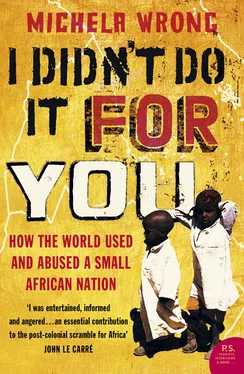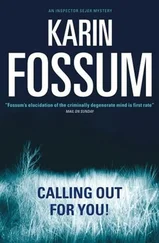âPeople from the Mareb to the sea, hear me! His Majesty the King of Italy desired that I should come amongst you and govern in his name. And for ten years I listened and I judged, I rewarded and I punished, in the Kingâs name. And for ten years I travelled the lands of the Christian and the Moslem, the plains and the mountain, and I said âgo forth and tradeâ to the merchants and âgo forth and cultivateâ to the farmers, in the Kingâs name. And peace was with you, and the roads were opened to trade, and the harvests were safe in the fields. Hear me! His Majesty the King learnt that his will had been done, by the Grace of God, and has permitted me to return to my own country. I bid farewell to great and small, rich and poor. May your trade prosper and your lands remain fertile. May God give you peace!â 26
With this portentous salutation, the Martini era came to a close.
He left behind a society transformed, but one â as far as its Eritrean majority was concerned â that held him in awe rather than affection. Today, when most Eritreans learn English at school, Martini has become little more than a name, his thoughts and achievements obscured by the barrier of language. Asmara holds not a single monument to this seminal figure. But older, Italian-speaking Eritreans remember, and their assessment of Martini is as ambivalent as the man himself. âHis legacy has been enormous, yet his aim was always to keep Eritrea in chains,â says Dr Aba Isaak, a local historian. âHe was a number one racist, but a superb statesman. I admire him, even while I regard him as my enemy.â 27
When Martini left, there was no doubt in his mind that his government owed him thanks beyond measure. By his own immodest assessment, he had shored up a bankrupt enterprise and âsavedâ an entire colony from abandonment, transforming a military garrison into a modern nation-state. But Martini had also laid the groundwork â quite literally, in the case of the railway â for the sour years of Fascism, when the implicit racism of his generation of administrators was turned into explicit law, and a colonial regime that had seemed a necessary irritation began to feel to Eritreans like an intolerable burden.
In the years that followed, the colony would serve as little more than a supplier of cannon fodder for Italyâs campaign in Libya, sending its ascaris to seize Tripolitania and Cyrenaica from the Turks in 1911. Italyâs African pretensions were largely forgotten as the country was plunged into the horrors of the First World War. The Allied carve-up of foreign territories following that conflict left Italians bruised. Right-wingers who still quietly pined for an African empire felt their country had been promised a great deal while the fighting raged, only to be palmed off with very little by the Allies when the danger of German victory passed. It was an anger that played perfectly into the hands of the bully who was about to seize control of Italy.
As a youthful Socialist, Benito Mussolini had railed against liberals such as Martini for frittering away funds he felt would have been better spent tackling Italyâs underdeveloped south, actually going to prison for opposing Italyâs invasion of Libya. But once he assumed office in 1922 as prime minister, Mussoliniâs attitude to empire changed. Hardline Fascist commanders were dispatched to Libya and Somalia, where they ruthlessly crushed local resistance and expropriated the most fertile land. The extreme nationalism at Fascismâs core required a rallying cause and Mussolini was a great believer in the purifying power of battle. âTo remain healthy, a nation should wage war every 25 years,â he maintained. He was determined to prove to other European powers that Il Duce deserved a seat at the negotiating table. Nursing expansionist plans for Europe, he needed a quick war that could be decisively won, giving the public morale a boost before it faced more formidable challenges closer to home. Abyssinia, which many Italians continued to regard, in defiance of all logic, as rightfully theirs, seemed the perfect choice. France had Algeria, Britain had Kenya. It was only fair Italy should have her âplace in the sunâ.
As the official propaganda machine cranked into action, Italians were once again sold the idea of Abyssinia as an El Dorado of gold, platinum, oil and coal, a land ready to soak up Italian settlers â Mussolini put the number at a blatantly absurd 10 million. Once again, one of Africaâs oldest civilizations was portrayed as a land of barbarians, who needed to be âliberatedâ for their own good. Italian officials were not alone in nursing a vision of Abyssinia that could have sprung from the pages of Gulliverâs Travels . âThere human slavery still flourishes,â Time magazine told its readers in August 1926. âThere the most trifling jubilation provides an excuse for tearing out the entrails of a living cow, that they may be gorged raw by old and young.â Itching for a pretext to declare war on Ras Tafari, the former Abyssinian regent who had been crowned Emperor Haile Selassie in 1930, Mussolini finally seized on a clash between Italian and Abyssinian troops at an oasis in Wal Wal as a pretext. Retribution had been a long time coming, but the battle of Adua was about to be avenged.
For Eritrea, the obvious location for Italyâs logistical base, the forthcoming invasion meant boom times. Ca Custa Lon Ca Custa (âWhatever it costsâ) reads the slogan, written in Piedmontese dialect, carved into the cement of the ugly Fascist bridge which fords the river at Dogali. It epitomized Mussoliniâs entire approach to the war he launched in the autumn of 1935, ordering a mixed force of Italian soldiers and Eritrean ascaris to cross the Mareb river dividing Eritrea from Abyssinia. âThere will be no lack of money,â he had promised the general in charge of operations, Emilio de Bono, and the ensuing campaign would be characterized by massive over-supply. 28 When de Bono asked for three divisions, Mussolini sent him 10, explaining: âFor the lack of a few thousand men, we lost the day at Adua. We shall never make that mistake. I am willing to commit a sin of excess but never a sin of deficiency.â 29 Some 650,000 men, including tens of thousands of Blackshirt volunteers, were eventually sent to the region and with them went 2m tonnes of material, probably 10 times as much as was actually needed. Flooded with supplies â much of it would sit rotting on the Massawa quayside, only, eventually, to be dumped in the sea â Eritreaâs facilities suddenly looked in dire need of modernization.
A 50,000-strong workcrew was dispatched to do the necessary: widening Massawa port, building hangars, warehouses, barracks and a brand-new hospital. The road to Asmara was resurfaced, airports built, bridges constructed. Martiniâs heart would have thrilled with pride, as his beloved railway finally came into its own. Trains shuttled between Massawa and Asmara nearly 40 times a day, laden with supplies for the front. Even this was not considered sufficient, however, and, in 1936, work started on another miracle of engineering, the longest, highest freight-carrying cableway in the world. The 72-km ropeway erected by the Italian company of Ceretti and Tanfani, strung like a steel necklace across the mountain ranges, was as much about demonstrating the white manâs mastery over the landscape as meeting any practical need. It was exactly the kind of high-profile, macho project Mussolini loved.
Asmara blossomed. New offices and arsenals, car parks and laboratories sprang up, traffic queues for the first time formed on the cityâs streets. The most modern city in Africa boasted more traffic lights than Rome itself. Soon the simple one-storey houses of the 19th century were dwarfed by Modernist palazzi. In the space of three frenzied years, Italyâs avant-garde architects, presented with a nearly blank canvas and generous state sponsorship, created a new city. A mere five years before Mussoliniâs new Roman empire was to crumble into dust, Eritreaâs designers dug foundations and poured cement, never doubting, it seems, that this empire was destined to endure.
Читать дальше












